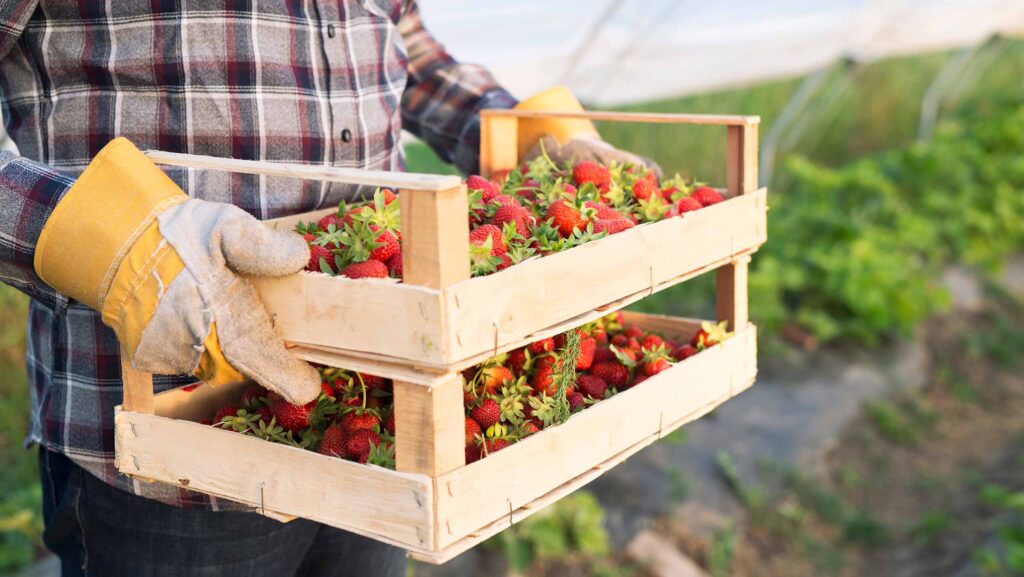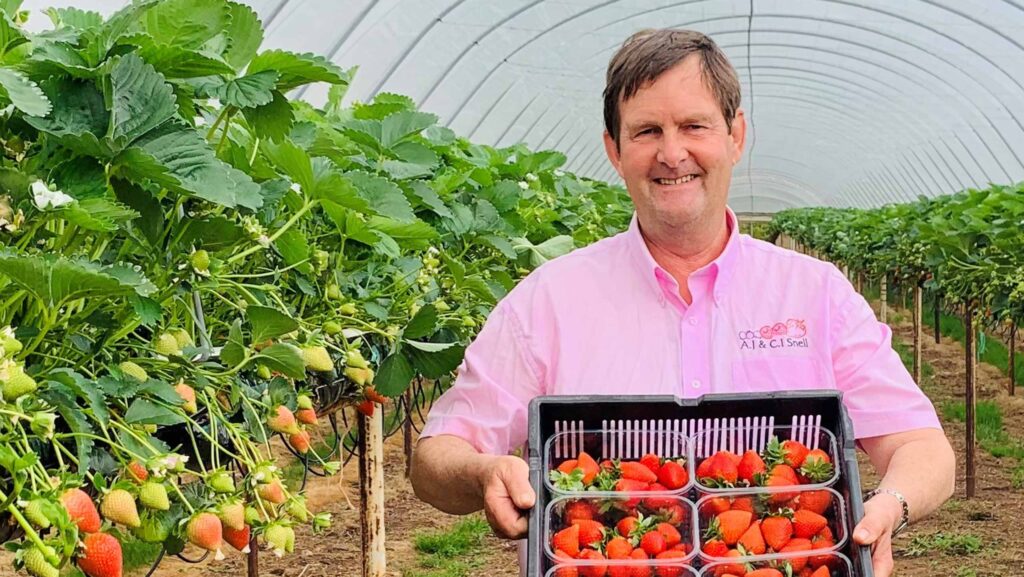Berry growers under threat from rising costs
 © Adobe Stock
© Adobe Stock British berry growers face a precarious future despite demonstrating resilience amid tough market conditions.
Recent research by the British Berry Growers, the industry body representing over 95% of British berries sold in the UK, reveals that nearly half of the growers (47%) are no longer profitable, and a significant portion is considering reducing or ceasing berry production altogether.
If conditions do not improve, 40% of growers could go out of business by the end of 2026.
See also: British Berry Growers fear new audit rules will add cost burden
The challenges stem from Brexit, rising costs, labour shortages, and insufficient government support. Due to these challenges, 37% of growers are considering scaling back production or exiting the berry industry.
Production costs have surged since 2020, driven by increases in labour, fertiliser, packaging and transport. For example, it now costs on average almost £2,000 more to grow one tonne of raspberries than four years ago.
Nick Marston, chairman of British Berry Growers said: “Berry growers have had a massive increase in costs over the last few years, but there has been very limited – if any – recovery from the marketplace to date.”
British Berry Growers has commissioned an independent report from EY which will look at the profitability of UK berry growing businesses, the gross value added (GVA) contribution of berry growing in the UK to the economy, the concerns of the industry and potential fixes.
Survey responses from 46% of the total tonnage of its membership will be used to inform the report, which is due out in the early autumn.
Meanwhile, berry growers are seriously concerned about plans to introduce new auditing requirements which could cost the UK berry industry an additional £60m a year.
Mr Marston also called for a pause on planned changes to the Supplier Ethical Data Exchange (SEDEX) 7.0 audit, which would require employers to pay travel and visa expenses for seasonal workers, to be put on hold.
The new Labour government could adopt a number of new policies to improve prospects for UK berry growers, Mr Martson said.
These include extending the stay length of temporary worker visas under the Seasonal Worker Scheme (SWS) from six to nine months and the introduction of a five-year rolling SWS.
Soft fruit grower calls for more retailers to ‘back British’
One of the UK’s leading fresh and frozen fruit growers has told of the challenges of this current season.
AJ & CI Snell is owned and run by company partners Anthony and Christine Snell with a state-of-the-art 2000t capacity packhouse at Windmill Hill, Herefordshire.
They grow 1,000t of strawberries plus raspberries, blackberries and blueberries, along with a further 700t of conventional and Soil Association-certified organic blackcurrants.
Mr Snell says the cost of labour for the business’s 240 seasonal workers has increased 100% since 2014 to £11.44/hr national living wage now, which is a “big issue”, as labour is 80% of costs.

Anthony Snell © AJ & CI Snell
Second, the UK production of strawberries and raspberries has been low for much of the season, and then in oversupply in August, causing financial issues.
Third, Mr Snell says some retailers are importing more fruit if they can get it cheaper than UK prices. But he says imported fruit is often of low quality, because it is deliberately picked under-ripe as it has a long, challenging delivery time.
“All customers should be focused on British is best. Soft fruit is good for the nation’s health and should be supported,” said Mr Snell.
“UK growers will produce polytunnel soft fruit until at least the end of October and, we, like many growers are very focused on important British sustainability.”
